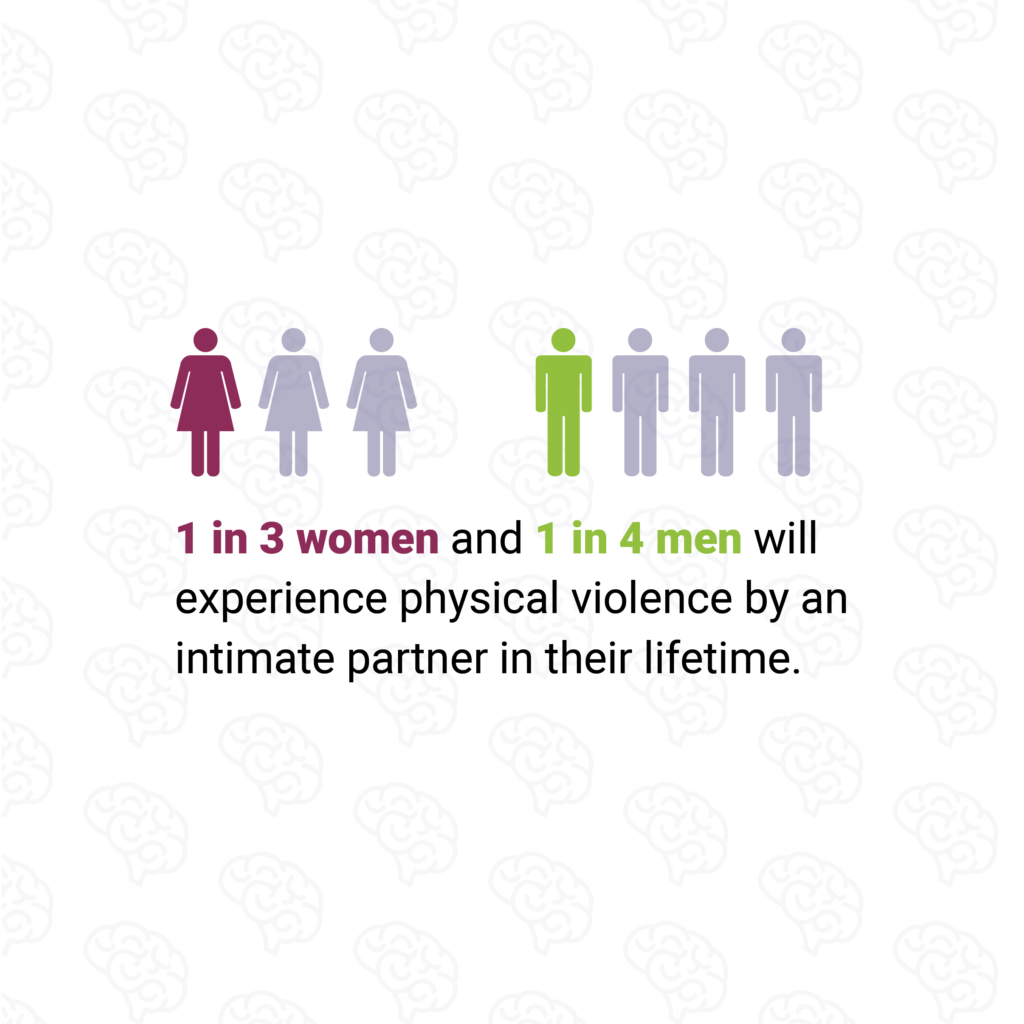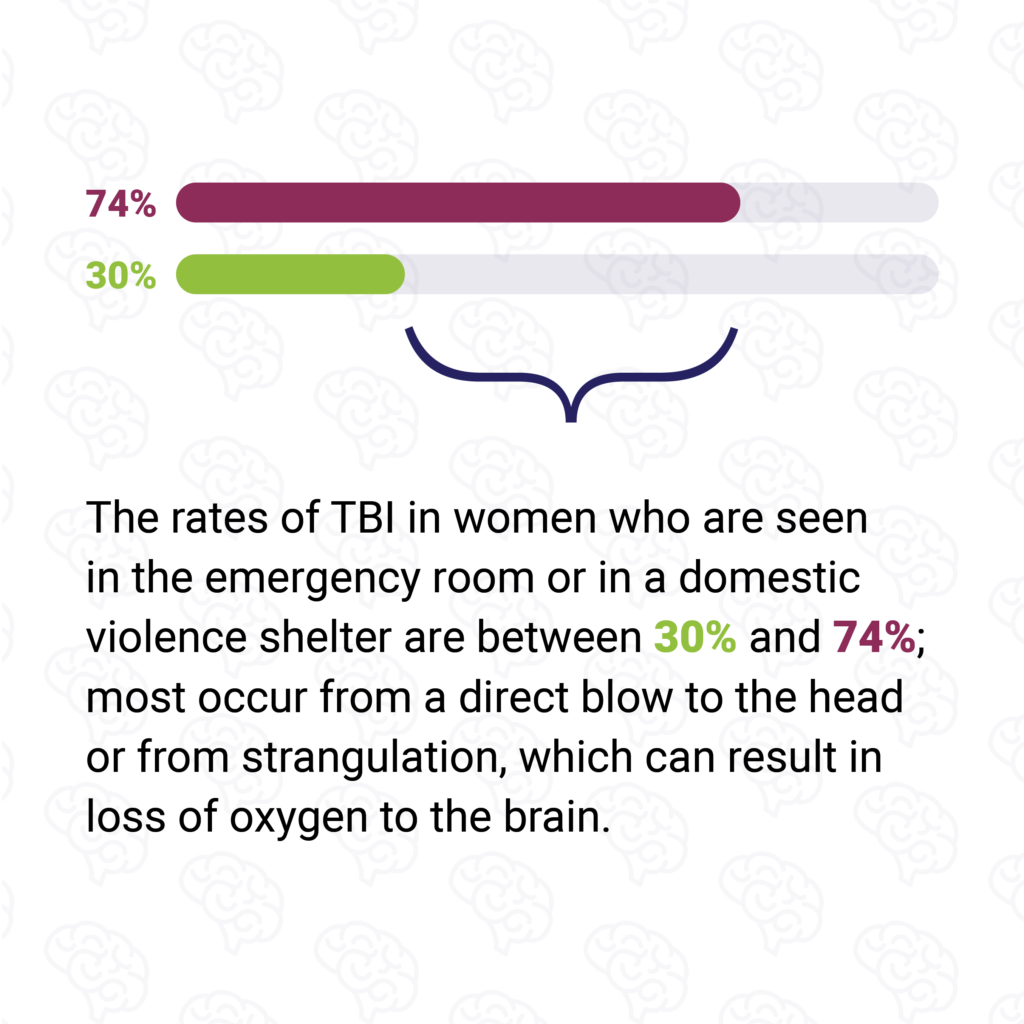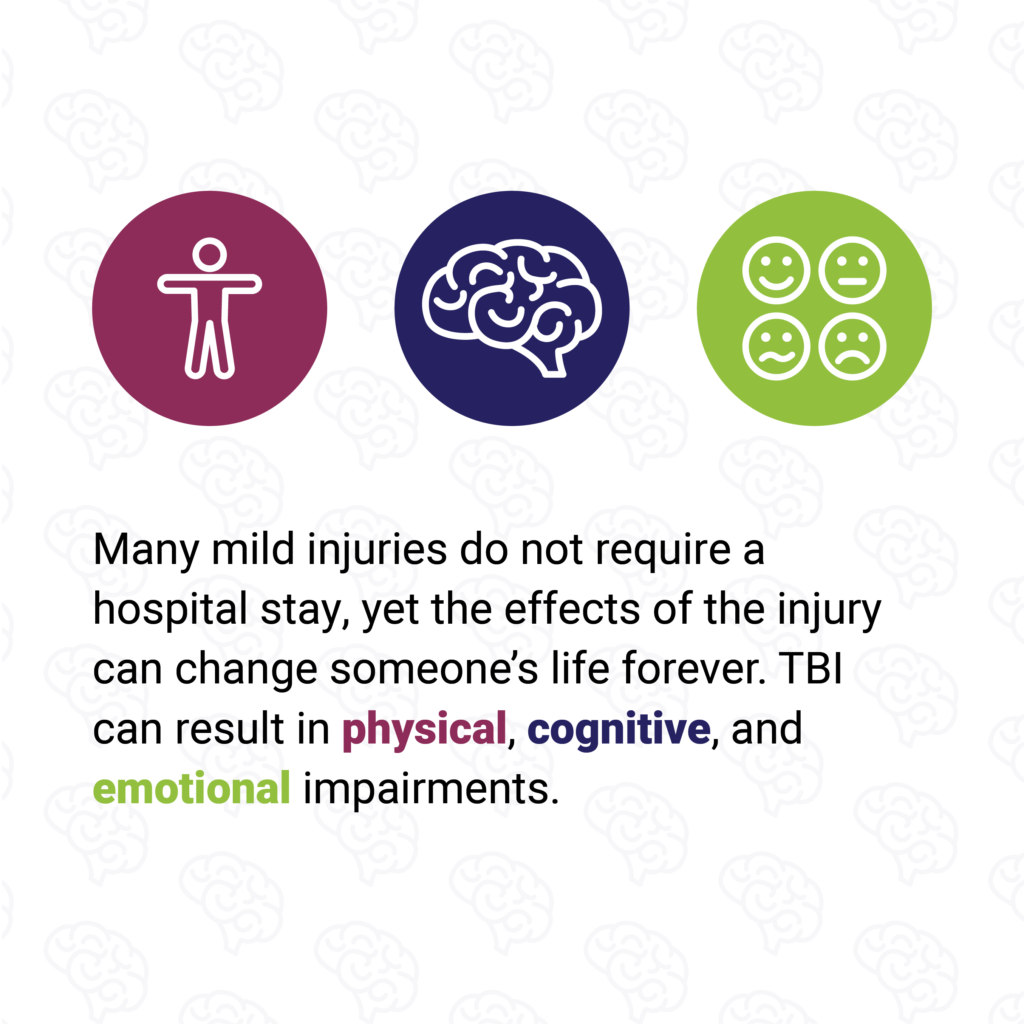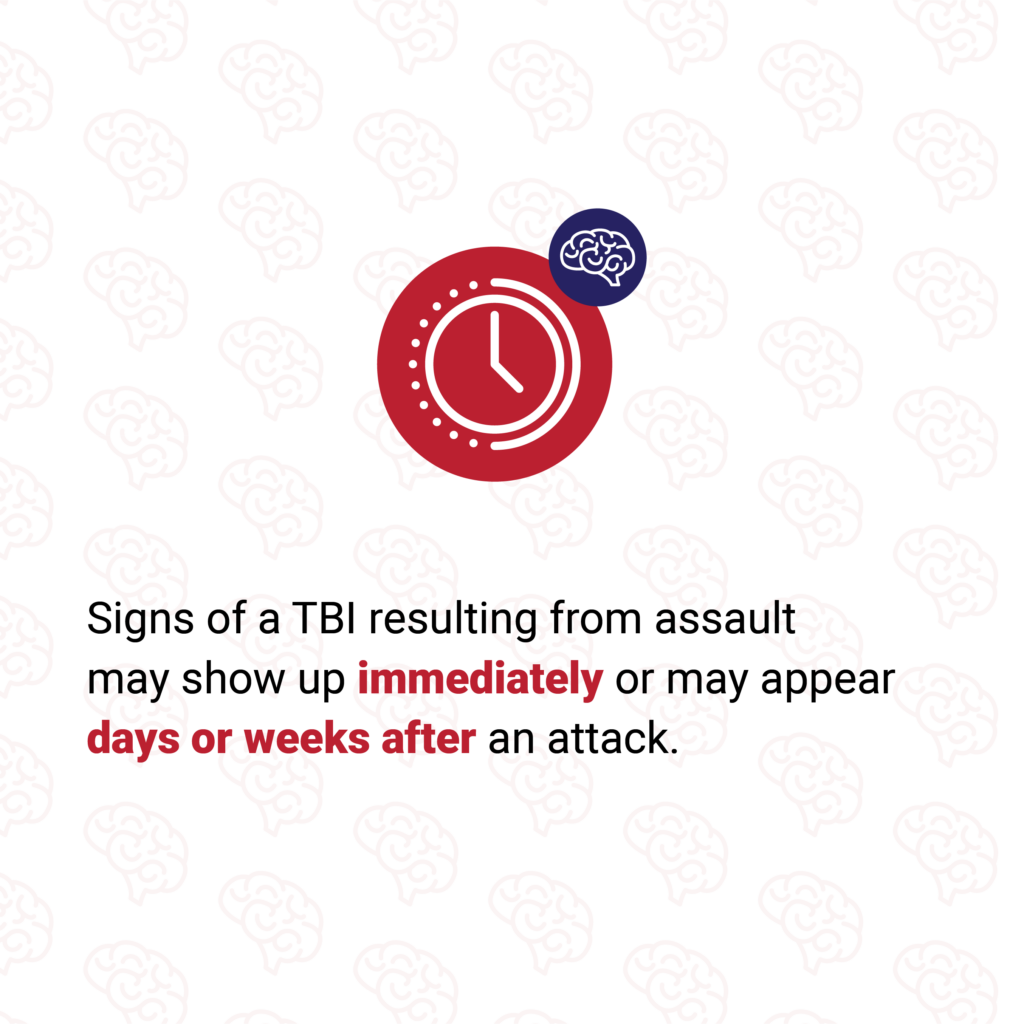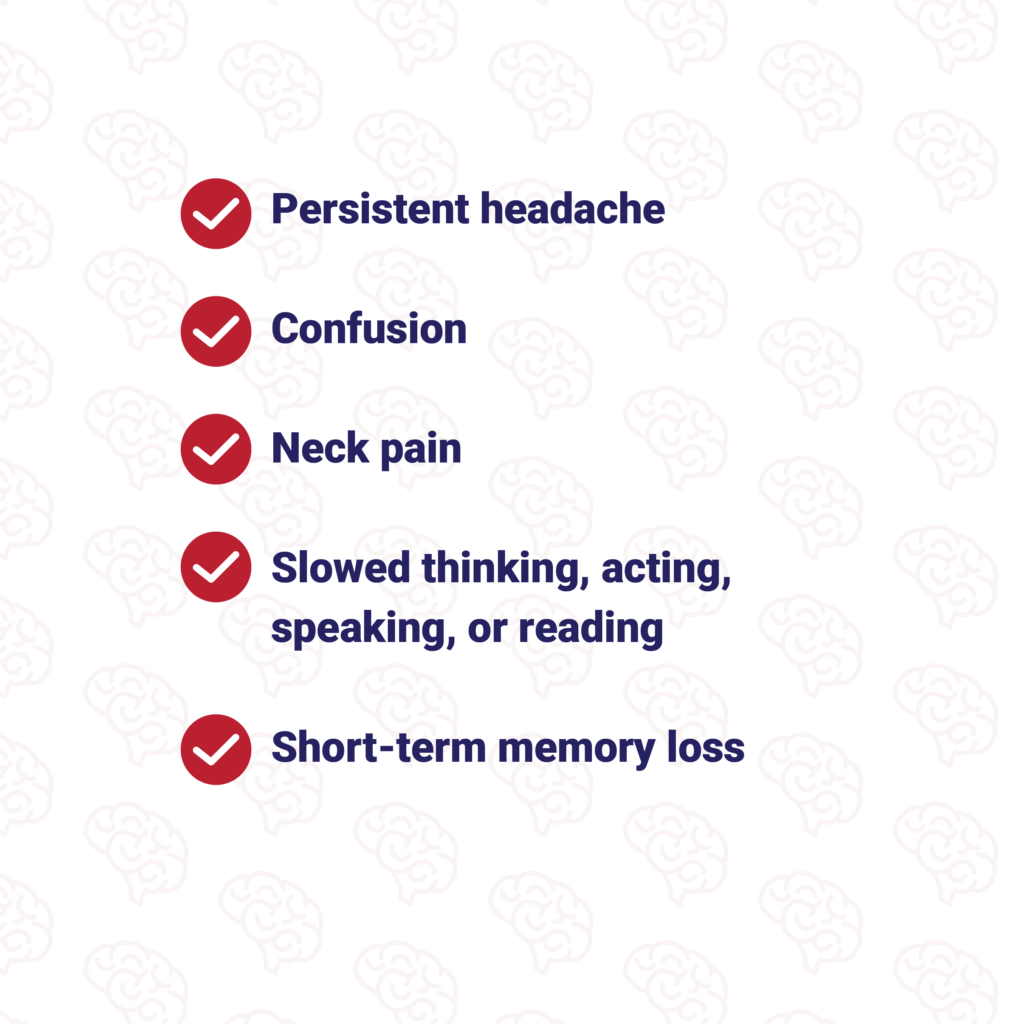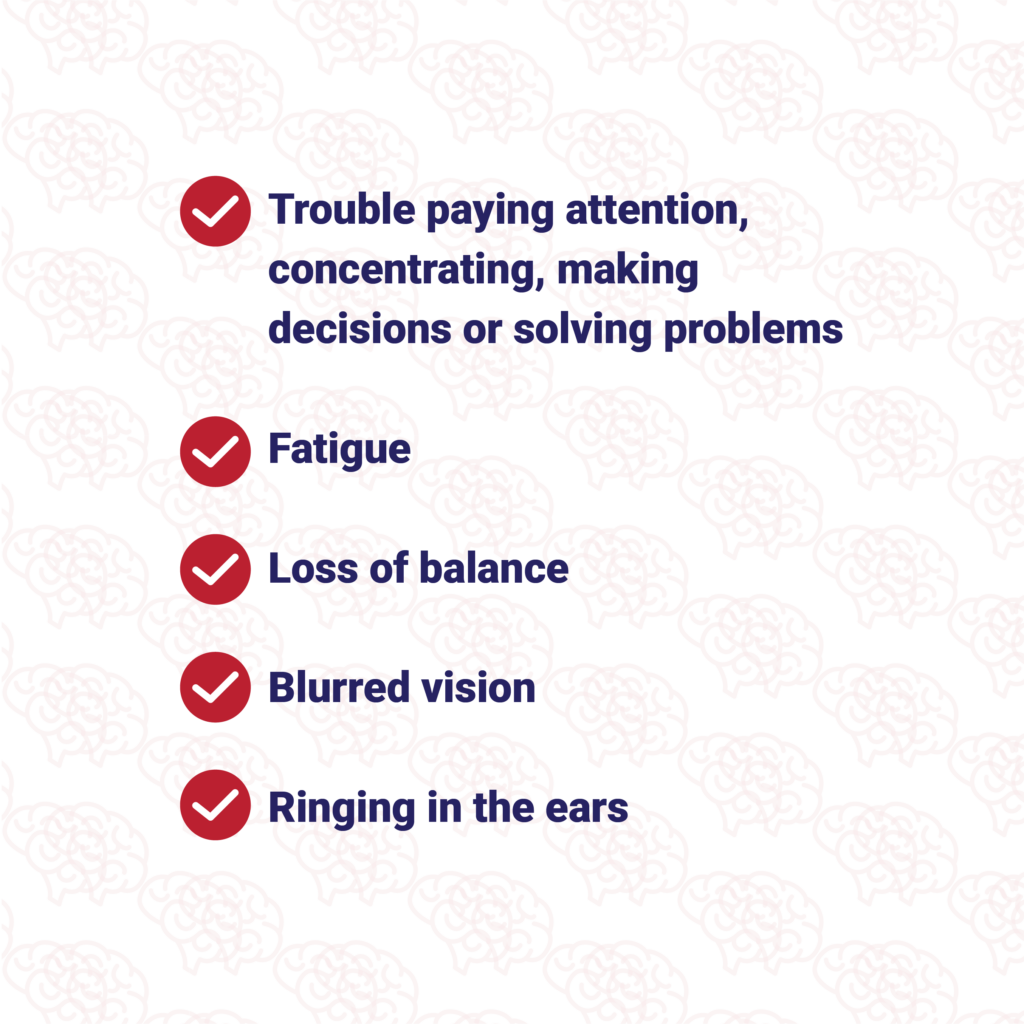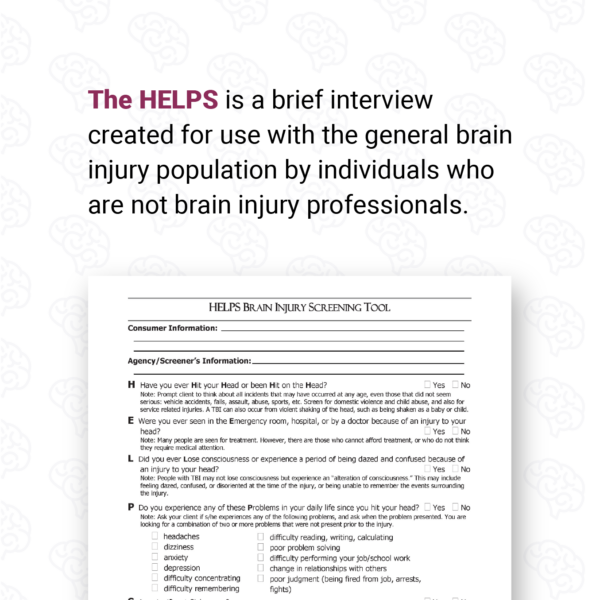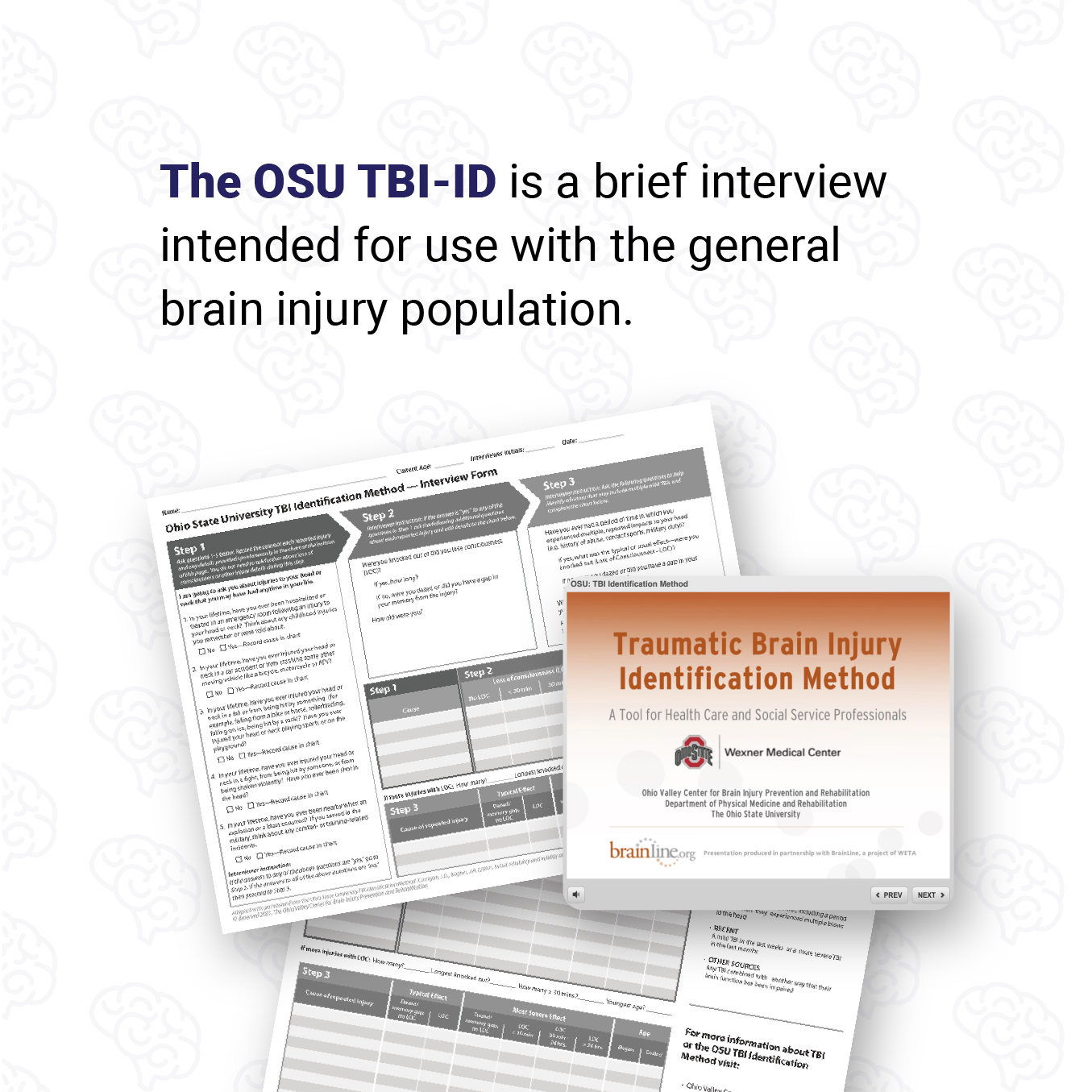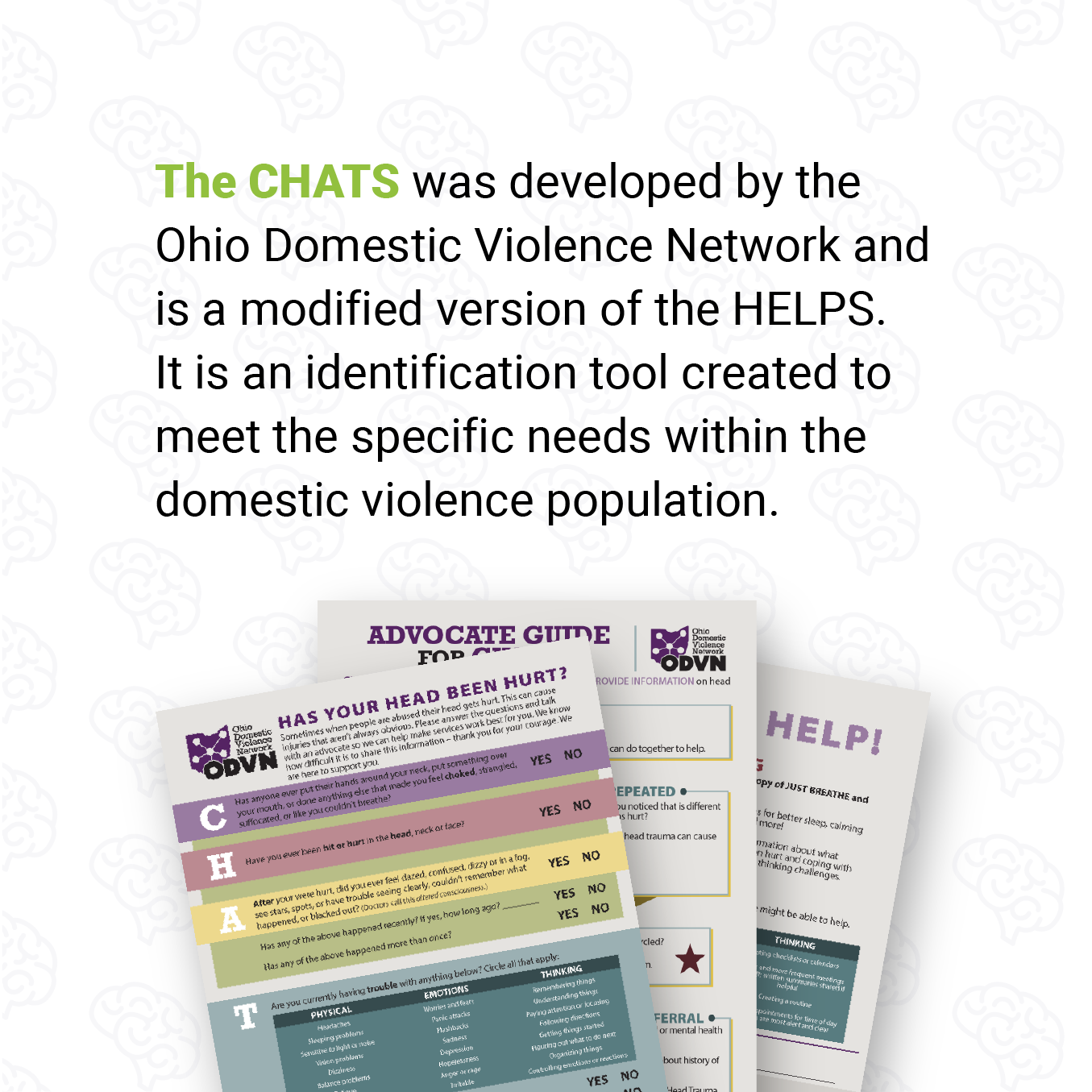Your Cart
Connecting Brain Injury and Domestic Violence
The connection between brain injury and domestic violence is strong but often overlooked; the impact of physical and emotional violence on the body and mind is complex.
Potential Causes for Brain Injury (BI)
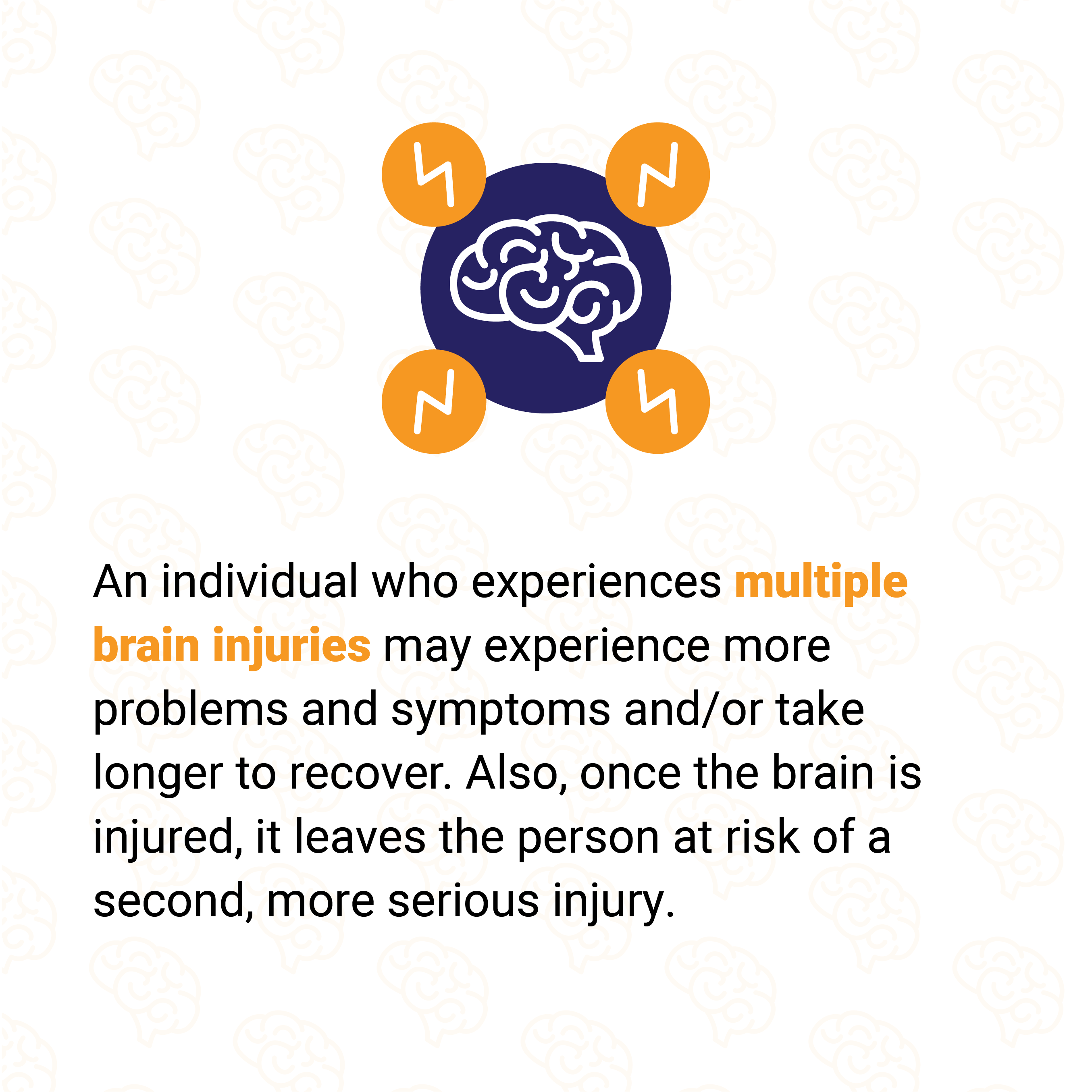
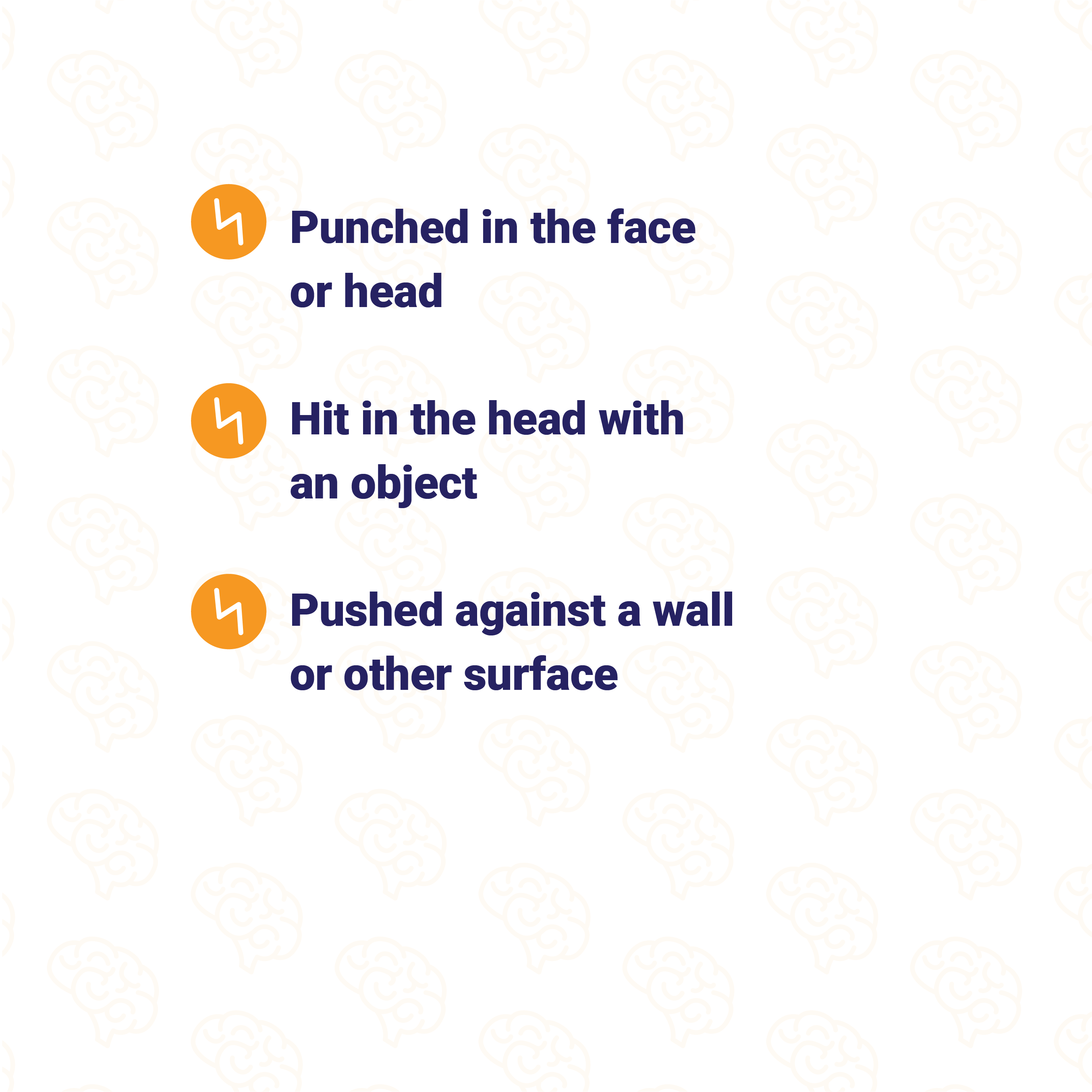
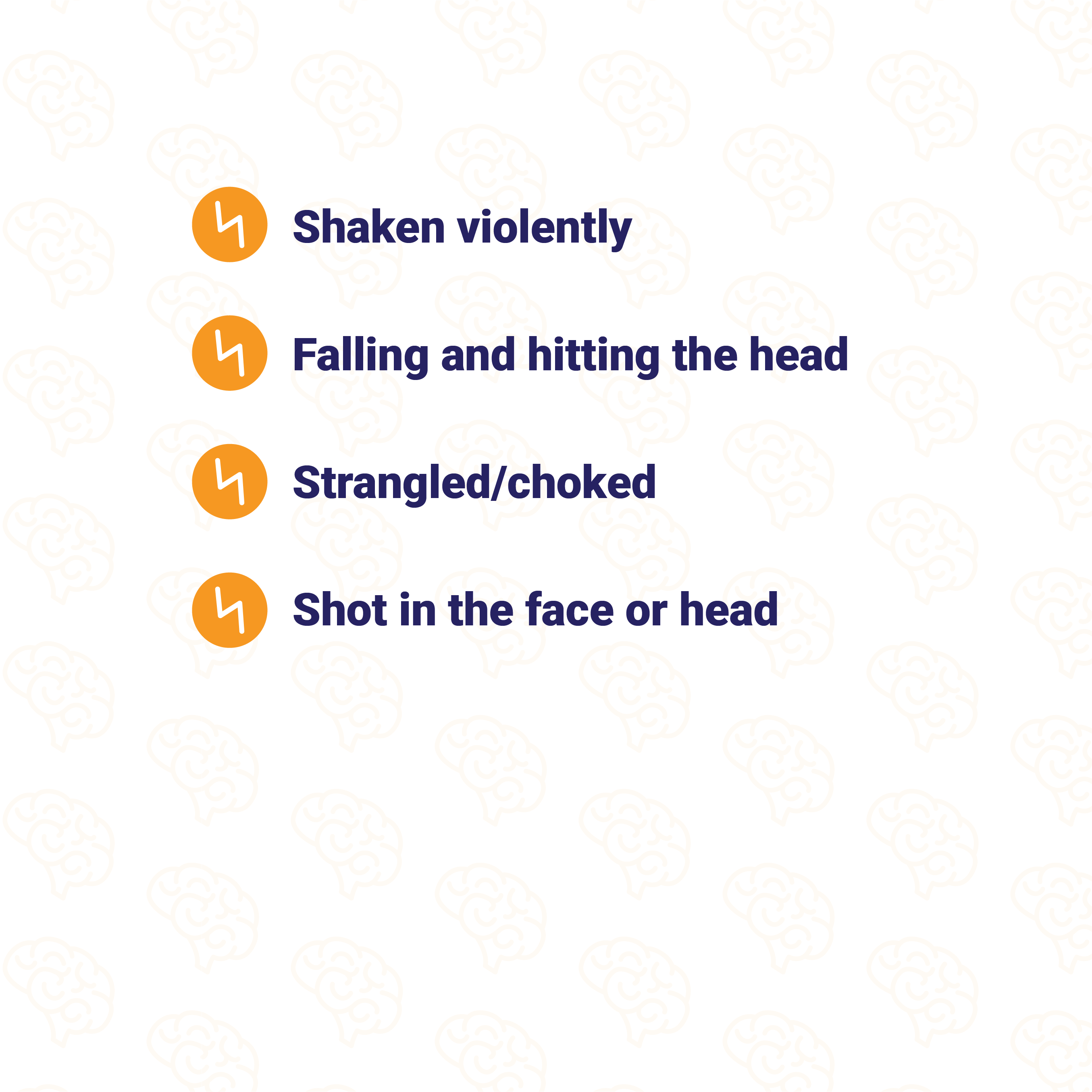
Resources for Survivors
If you suspect you have sustained a brain injury, seek medical attention as soon as possible.
You can also get in contact with an organization in your community that is able to help you or find other providers. Here are a few resources:
Statewide Hotline for Family Violence and Sexual Assault
- Call 1.800.838.8238
- Text 804-793-9999
- Use their chat feature on their website: vadata.org/chat
Virginia Action Alliance has a comprehensive directory of service providers in your immediate area and can be contacted to speak over the phone. Visit their website for more information: vsdvalliance.org
Brain Injury Association of Virginia can help you better understand brain injury and consult with you about your personal situation. We can then direct you to services you might need in your area.
Our services are confidential and free.
- Call our toll free hotline at 800-444-6443
- Use the chat feature on our website.
Resources for Professionals
Information for those looking to implement screens for brain injury in their own practice.
Brain Injury Screening Overview & Tools
What is it?
Screenings are a way to identify individuals who may have a brain injury. It is important to understand that screening for brain injury is not the same as diagnosing someone with a brain injury. Results from a screening can help you decide who would benefit from a referral for further testing done by a medical professional.
Why should it be done?
Individuals who experience domestic violence might not consider the possibility they have a brain injury; or they might attribute their symptoms to other causes. Screening for brain injury among individuals who experience domestic violence could help prevent invisible injuries from going undiagnosed, delaying recovery, and causing further damage.
What screening tools are available?
While there is no universally accepted brain injury screening tool for survivors of domestic violence, two that have been used are the HELPS Brain Injury Screening (HELPS) and the Ohio State University Traumatic Brain Injury Identification Method (OSU TBI-ID). Both of these tools are quick to administer and are used to identify events and experiences indicative of possible brain injury. The questions in either the HELPS or the OSU TBI-ID take approximately 5-10 minutes to administer and can be incorporated into a conversation during the typical intake process. The following page provides more information about these two screening tools, as well an additional identification tool, the CHATS.
Access the OSU TBI-ID online training module here.
Click on each image below to access the material.
Brain Injury Referral: Next Steps
Discuss Screening Results
Help your client understand what the results mean and what they don’t mean. A positive brain injury screen is not a medical diagnosis. However, it indicates the individual is displaying symptoms consistent with those of brain injury and that they could benefit from further assessment by a medical professional. Brain injury symptoms may not appear until days later, so it is important to ask about any changes your client is experiencing and re-screen as appropriate.
Share Options
- Refer them to a doctor for further assessment to explore symptoms and needs
- Open up a discussion on their symptoms and ways you can support them while working with them (see brain injury symptom management strategies for suggestions)
- Have them speak with a BIAV resource specialist to learn more or ask questions
Brain Injury Association of Virginia
The Brain Injury Association of Virginia provides free and confidential services across Virginia to individuals with brain injury, their caregivers and family members, and professionals. Resource specialists are available between 9am and 5pm to provide brain injury education, discuss referral information and state and national resources, or address any questions. Additional information can be found on the BIAV website, including our community resource directory which may help you locate brain injury services in your area, and Quick Guides on specific topics about brain injury.
The Federal Grant Funding by VA Dept of Health made this page possible.


